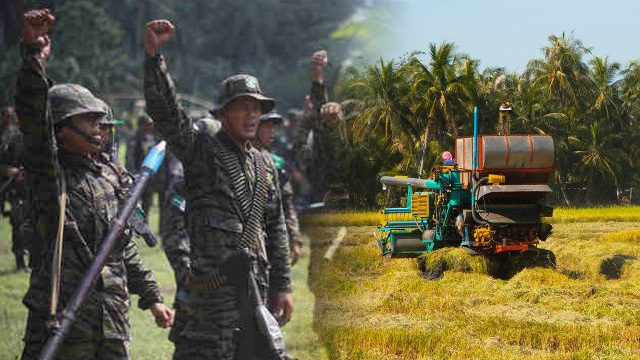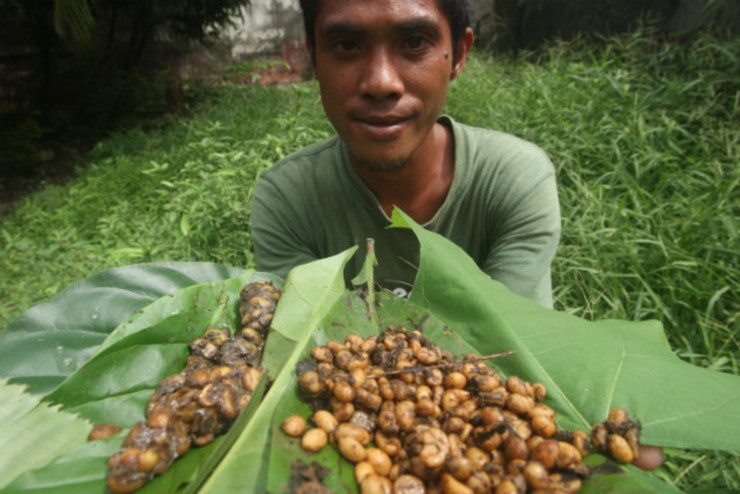SUMMARY
This is AI generated summarization, which may have errors. For context, always refer to the full article.

MANILA, Philippines – Former Moro Islamic Liberation Front (MILF) military camps are set to be transformed into “peaceful and productive communities” through initiatives in agriculture, the government said Wednesday, January 6.
Department of Agriculture (DA) Secretary Proceso Alcala led the launching of the farmers’ assistance program on Wednesday, where initial farming equipment and materials were distributed to farmers in communities located in former MILF camps, according to a government press statement. He was joined by former DA Secretary and Philippine government (GPH) peace panel member Senen Bacani.
The program, according to the Office of the Presidential Adviser on the Peace Process (OPAPP), is a “confidence-building measure” with the goal of transforming the former camps into communities where families – especially children – can live in peace.
The former camps undergoing transformation include Camp Abubakar as-Siddique, Camp Badre, and Camp Omar ibn al-Khattab in Maguindanao; Camp Rajamuda in North Cotabato and Maguindanao; Camp Bilal in Lanao del Norte and Lanao del Sur; and Camp Busrah Somiorang in Lanao del Sur.
The Aquino administration and the MILF have signed a peace accord that seeks to end decades of conflict in Mindanao. But the law that is seen to institutionalize the agreement remains pending in Congress.
Organized by the Task Force Camps Transformation (TFCT) and DA, the program is part of the normalization phase of the agreement.
Huge potential in agriculture
Equipment distributed to farmer-beneficiaries include 6 units of heavy-duty farm tractor, 3 units of hand tractor, and 6 units of cassava grater. Planting materials such as fertilizers and seedlings were also given to help local farmers in conflict-affected areas.
Other equipment including non-motorized fishing boats, fish traps, and corn mills, among others, will be turned over within a period of 2 to 3 months.
According to the Philippine Statistics Authority (PSA), the agriculture and fishing sector – together with hunting and forestry – accounted for 61.28% of the economy of the Autonomous Region in Muslim Mindanao (ARMM). Almost 70% or 840,000 people are employed in the agricultural sector with a daily wage of P220 ($4.6)*.

Data from the ARMM’s Agriculture Resource Monitoring and Management Statistics shows that its share in the national production of palay is at almost 612,083 metric tons, making it 11th among all regions. Area harvested, meanwhile, have been increasing in recent years with 226,700 in 2013 – 11.78% higher than 2012.
The Food and Agricultural Organization (FAO) also noted that the region “supplies over 40% of the country’s food requirements” therefore the sector’s development is vital for ARMM’s continuous rise from its poverty-stricken years due to conflict.
With over a third of ARMM land already devoted to farming, the addition of former MILF camps will help boost the local economy.
Sustainable agriculture is key to long-lasting peace, according to FAO. – Rappler.com
*$1=P47
Add a comment
How does this make you feel?
There are no comments yet. Add your comment to start the conversation.